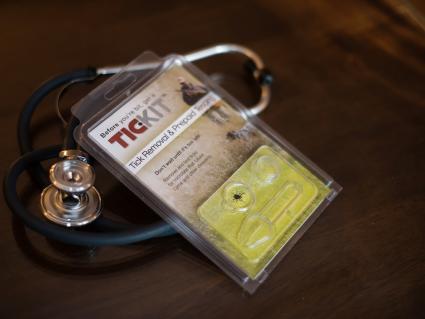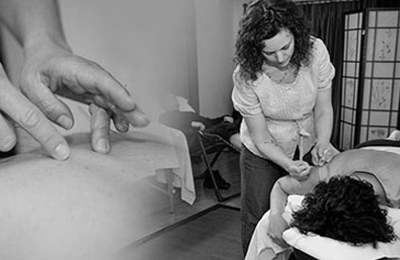Lyme Disease and Mental health

For those who are not diagnosed and treated in the early phases of Lyme disease, symptoms can progress to affect almost every part of the body. Some people present with chronic pain, some with autoimmune diseases, and some with predominantly neurological symptoms. Neurological Lyme often includes sudden changes in mood which can impact a person’s day to day life functions.
Early in the process of conventional medicine’s struggle to characterize chronic or post-treatment Lyme disease, psychologists noticed that some of their patients with anxiety and depression were presenting with other co-occurring symptoms. Depression, anxiety, and irritability presented with fatigue, pain, light and sound sensitivity, cognitive problems and numbness and tingling of the extremities. Depression and anxiety that is related to tick borne illness may not respond to treatment with traditional antidepressant medications.
Traditional psychotropic medications are designed to support the balancing of neurotransmitters, like serotonin. However, mood changes related to tick borne infection do not respond to traditional medications as they are not caused by neurotransmitter imbalances. The depression, anxiety, and irritability as a result of Lyme disease is due to encephalopathy, or in other words, a disease process happening in the brain. Inflammation, infection, lack of blood flow or damage to parts of the brain is to blame, therefore it is important that your practitioners are Lyme literate when treating complex mental health conditions like depression.
Diagnosing and treating infection and inflammation may improve mental health where traditional antidepressant medications fail. Anxiety and depression associated with Lyme disease can be severe, extreme, or last for extended periods of time. This severity of Lyme-associated depression and the sense of isolation associated with this complex illness is well known by Lyme-literate physicians and patients.
Research done by Columbia University Irving Medical Center and the Copenhagen Research Centre for Mental Health, found that patients in Denmark who received a hospital diagnosis of Lyme disease had a 28% higher rate of mental disorders and were twice as likely to have attempted suicide post infection than individuals without a Lyme diagnosis (Fallon, B. A., The American Journal of Psychiatry, Vol. 178, No. 10, 2021). This study helps us understand that having Lyme disease puts one at greater risk of poor mental health and suicidality than the general public.
At the Stram Center we encourage those suffering with chronic illness to have mental health support as part of treatment. Our licensed mental health counselor, Danielle Stram, understands the intersection of Lyme disease and mental health and is here to help you navigate life’s challenges.
Therapy is important to help cope with the stress and changes that are involved with being sick and the healing process. If you or someone you know is suffering from Lyme disease, depression, and is at risk for suicide please reach out for help. You can now reach a national suicide and crisis hotline by dialing 988 if you are experiencing an emergency. Please make sure that you speak with your doctor about how you are doing mentally as you go through treatment.
About Kathryn Boulter, N.D.Related Blog Posts

An Interview with Dr. Stram: How Effective are the Current Conventional Treatments for Lyme Disease?
In this interview, we asked the founder of the Stram Center, Dr. Ronald Stram, how effective current antibiotic protocols are in regard to Lyme disease treatment. Dr. Stram has devoted his career to those suffering from chronic illnesses, specifically tick-borne diseases. Since 2003, the Stram Center has served nearly 10,000 patients suffering from Lyme disease all across the globe. Dr. Stram…Read the Post

Herbal Support For Lyme Disease
Lyme disease a bacterial infection caused by Borrelia Burgdorgeri and in late stages, it can be difficult to treat. There is evidence that the Borrelia bacteria persists in tissues and can shift its form or shape in unfavorable host conditions, including a round body or cyst shap1.Different types of antibiotics and herbs have been studied to find the most effective agent that can…Read the Post

Herbal Therapies Can Help Fight Lyme
Using herbal therapies in conjunction with antibiotics can help fight lyme more effectively.Read the Post

Is There a “Lyme Diet”?
For individuals affected by Lyme disease, treatment can take many forms. There are medicines and herbals. Complimentary therapies and mental health support. And diet can make a substantial impact for most people. Rather than one particular “Lyme diet”, nutrition is as individualized throughout one’s Lyme healing journey as it is throughout one’s lifetime. No one “diet” is meant to…Read the Post

How to Recognize and Prevent Lyme Disease
This month is Lyme disease awareness month. As the number of cases continue to increase year after year, one must be knowledgeable about how to recognize and prevent this elusive and challenging disease. Lyme disease is a spirochetal bacterial infection transmitted by deer ticks. In the late 1970s in Lyme, Connecticut, a group of children started having symptoms that included rashes, fevers,…Read the Post

Lyme and Chinese Herbs
Integrating Chinese Medicine for the treatment of Lyme.Read the Post

Shifting Your Resolutions
As the leaves begin to fall, the air begins to grasp tighter around our skin; we reminisce, reflect on our year, and for most of us, begin to feel regret and shame for not accomplishing those new year resolutions we thought of many months before. The end of the year can be met with stress, anxiety, and depression, and especially now, we may have more fear and uncertainty. We tend to put pressure…Read the Post

Gratitude and Chronic Illness
Living with a chronic illness can offer a special set of skills, emotional awareness, and shift in the ways in which we associate with gratitude. When we think about gratitude, what comes to mind is often our external world, rather than what is experienced inward. With the grief that ensues in living with a chronic condition, our mind, body and soul begin to reconnect itself…Read the Post
Related Services

Lyme Disease
Lyme Disease Diagnosis and Treatment in Delmar NY and Burlington VT offices At the Stram Center we vow to continue our education on Lyme Disease research, stay up to date on the most effective testing and all the safe available therapies. Moreover, our years of experience in treating patients according to the whole person-integrative medicine approach allows us the most effective way to care…Lyme Disease

Mental Health Counseling
At the Stram Center, we recognize that mental health is often the basis of your potential to navigate life’s challenges as well as to heal from physical illness. Understanding your full self, including traumas and difficulties you may have experienced, is often the first step to learn what your unique strategies are in the face of life’s difficulties. Quality healthcare should include support…Mental Health Counseling
Naturopathic Medicine
Much like a general practitioner, a naturopathic doctor manages a broad range of health conditions affecting all people of all ages. However, naturopathic medicine is a distinct system of primary health care, distinguished by the healing principles upon which its practice is based.Naturopathic Medicine





















